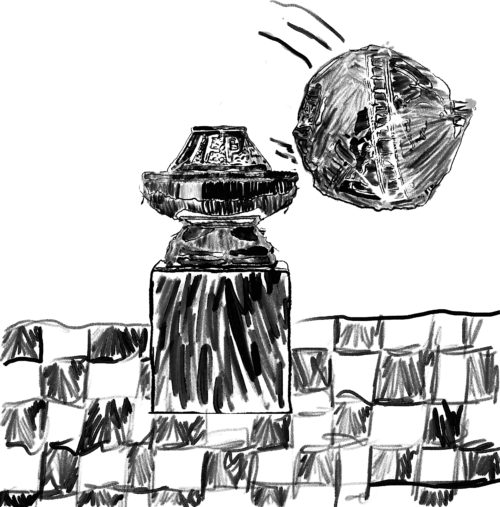On January 9th 2022, the Golden Globes were scheduled to air, an awards show organized by the Hollywood Foreign Press Association (HFPA) that celebrates achievements in movies and television, both domestic and international. For many people this show is an anticipated event, being recognized for many of its attributes: comedic emcees including Ricky Gervais in 2020; prominent red carpet coverage showcasing designer works; and critique on a years worth of cinema. Widely celebrated films and actors—from West Side Story and Cruella to Lady Gaga and Denzel Washington—were contenders for awards.
However, none of the anticipated frivolities happened this season. In February of last year, The New York Times released a bombshell investigation into the HFPA that pointed towards an institutional problem: out of the nearly 90 judges that are in charge the Golden Globes, not a single member is Black. To address this damning report on the HFPA, the following Golden Globes show issued a forty second apology—amidst their three hour screening on the air— to recognize what has been recognized as the organization’s lack of diversity. To most, this felt inadequate.
In the following months, the Golden Globes continued to address this controversy. They committed to a series of institutional changes to be announced on May 6th “in order to increase transparency in our organization and build a more inclusive community.” They promised to add a Chief Diversity, Equity, & Inclusion Officer and enroll twenty new members—with notably no mention of race—within the next year, hoping for a 50% increase in size by the end of 2023. The department called this a “big step in the right direction as they now turn to taking immediate steps to implement” these plans.
Once again, however, their execution was criticized for its slowness. For many of the proposed board positions, their September 1st deadline would mean that these changes would begin well after the start of the judging season, and, while committing to a larger sized judging staff, there was no insight offered into how these additions would be made with inclusion and equity. Non-profit organizations like Time’s Up further damned the board for its “unprofessional” assessment practices beyond just discrimination, pointing towards exclusive press conferences restricting transparancy as well many judges not actually watching the works that they grade. In the words of Tina Tchen, Time’s Up’s CEO, these steps were “sorely lacking and hardly transformational.”
Only days after this release, both Netflix and NBC announced that they would suspend their airing of the next cycle of the awards show, stating that they are “stopping any activities… until more meaningful changes are made” and that “change of this magnitude takes time and work… to do it right” respectively.
This is not the first, and will likely not be the last, scandal to hit the awards show stage. In 2016, April Reign’s viral tweet “#OscarsSoWhite they asked to touch my hair…” started a growing movement addressing a lack of diversity at the Oscars. Two years ago the Oscars were bashed for nominating only one black actor, Cynthia Erivo for best actress in Harriet, throughout the entire night. While last year’s Emmy Awards were praised for their historically diverse line-up of hosts and nominations, not a single award was presented to a person of color within the twelve major categories, what many concluded as a show of performative activism from the presiding board. And at the end of last year, Color of Change called the Country Music Awards “complicit in an industry that habitually devalues and dehumanizes Black people and [their] extensive contributions to country music.”
Recognizing institutional diversity is a timeless problem, especially at an organization like Harvard. The Kennedy School has recently been under fire for their own issues with the gender and racial makeup of their academics, with 77% of professors identifiying as white and 74% of professors identifying as male. In many departments across campus, the predominance of white voices is troubling to an institution that touts diversity as a core value; and in the midst of a developing legal battle fighting to tear down affirmative action, such a composition could not be more timely.
The issue of awards show diversity has, historically, been a broken record. While taking the Golden Globes off the air was a strong step in the right direction, time will only tell if the consequences of such a decision will ever truly be felt. As Jane Fonda said in her own acceptance speech of last year, there is “a story we’ve been afraid to see and hear about ourselves, a story about which voices we respect and elevate and which we tune out.” The real question that we wait to see are what changes are made to the Golden Globes for next year.
Calvin Osborne ’25 (cosborne@college.harvard.edu) really watches award shows for the outfits.

